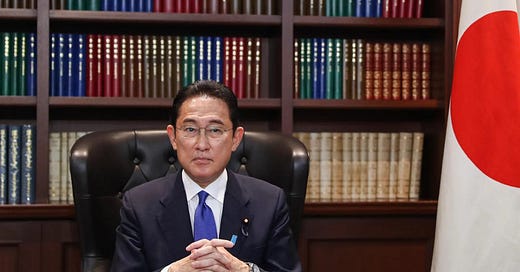Japan Is Facing an Essential Moment of Truth for Its Future.
Shinzo Abe's death comes at a time when the Japanese people are converting to his vision of a stable, strong and efficient state, able to defend its sovereignty.
The assassination of Shinzo Abe, on July 8, 2022, left Japan in a state of shock. His violence is out of place in a peaceful democracy where firearms are strictly controlled. Above all, Shinzo Abe, beyond his influence on the LDP, which remains the heart of power in Tokyo, occupies a unique place in Japanese political life by his longevity, his flamboya…
Keep reading with a 7-day free trial
Subscribe to Sylvain Saurel’s Newsletter to keep reading this post and get 7 days of free access to the full post archives.




